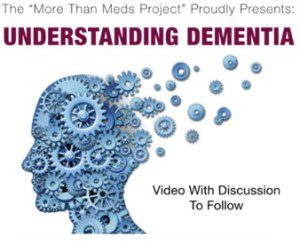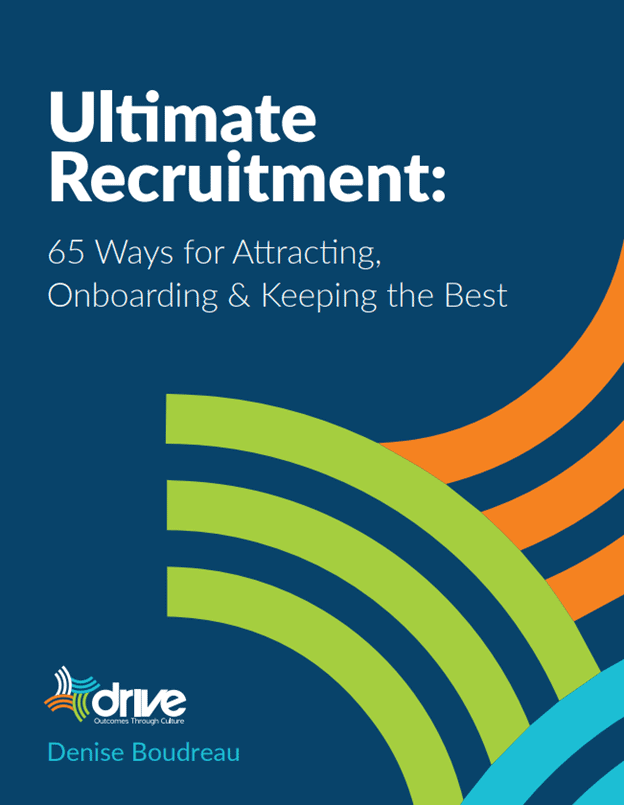“I feel like such a jerk; I’ve been saying the wrong things and I realize now that yelling back doesn’t help.”
A powerful statement as a result of a powerful program that one of our clients, Bergen Regional Medical Center hosted for the residents that live there.
It all started with the home’s involvement in the CMS funded grant project called “More Than Meds”, which aimed to reduce antipsychotic usage and strengthen person-centered care.
The More Than Meds Toolkit shares that, “Person-centered care is about starting with what is important to people living in nursing homes and creating systems to support these individuals and those working most closely with them. This requires us to change to way we do things, moving from an institutional model to a person-centered one; hence the term “culture change.” Culture change refers to the process of becoming more person-centered.” Download the toolkit today!
No Jerks Allowed
How exactly does a resident wind up calling himself a jerk? The More than Meds group, consisting of Rutgers University’s Michele Ochsner, consultant Sonya Barsness and Denise Boudreau-Scott led an evaluative period to determine a baseline for the home’s journey.
During in-depth interviews, it was identified that residents, family and staff desired more education on dementia. As a result, Bergen Regional Medical Center successfully implemented new systems to become more person-centered, and perhaps the most rewarding was new dementia education programs for residents.

Bergen Regional Medical Center started this educational program with offering just two sessions where residents were invited to watch the video titled “Person Centered Matters,” and participate in facilitated group discussion. Residents responded so favorably that they asked to repeat the series, as well as, rotate in new videos!
One resident explained that they learned, “having dementia does not mean you’re stupid.” Proper education dispels myths and has the potential to improve care and support. One resident explains, “I now know to watch my tone, volume, and facial expressions which affect people with dementia”
The Impact
When residents were asked, “How would you want to be treated if you had dementia?” and “How do you want to be treated if you have dementia now?” They responded, “With dignity,” “With understanding,” “With compassion,” and “With patience.”
Seeing the success of the sessions, Bergen Regional Medical Center introduced the training to other areas in the home, including their Korean neighborhood, where a staff member paused the video and translated for residents. The Bergen team saw no barriers, only opportunity when it came to doing this incredibly impactful teaching.
Educational sessions for residents were just one part of the dementia support that Bergen Regional Medical Center initiated based on feedback. Supplementary education for staff, peer support groups led by and for residents, and additional support and information to family members were also introduced. As a result, at the end of the 18-month More than Meds project, there was a 26% increase in family members that agreed, “Staff understand how to respond to the behaviors of people with dementia.”
Your Community
Remember, person-centered care is about focusing on what is important to residents and creating systems to support the staff who work closely with them. For Bergen Regional Medical Center, dementia education not only benefited, staff, family and residents, it also promoted cross-department collaboration – a key element for culture change.
Through focus groups and interviews, Bergen Regional Medical Center learned dementia education was needed and valued by staff, family and residents. What does your community value?
Here are five simple tips to find out and get started on your own journey:
- Consider the unique needs of your community. Utilize survey’s, focus groups or interviews to discover what opportunities exist – not only for patients and residents, but for family and staff as well.
- Focus on team building. Breaking down the silos that exist between departments will bring staff members together to deliver the best possible resident experience. When people can work together they are more likely to problem-solve together, rather than thinking person-centered care is just another thing “to-do.”
- Take a step back and consider whether or not you are supporting the transformation. Leadership support is essential – it is up to you to model the way for others. Encourage your managers and supervisors to lead with an open mind and heart.
- Celebrate your successes! Take a moment to celebrate with your team along the way. Change is difficult and keeping an open mind and positive spirit can be difficult at times. Celebrating your successes is not only a great team building; it renews your spirit and builds excitement to keep moving forward.
- Remember this is a process and it takes time. Dementia education was just one area that Bergen Regional Medical Center focused on and while they may have wanted to change a lot of things all at once they focused on a few opportunities that had the ability to make a big impact. Culture change is a process and it takes time.
This article was written by staff member, Allison Duda.
